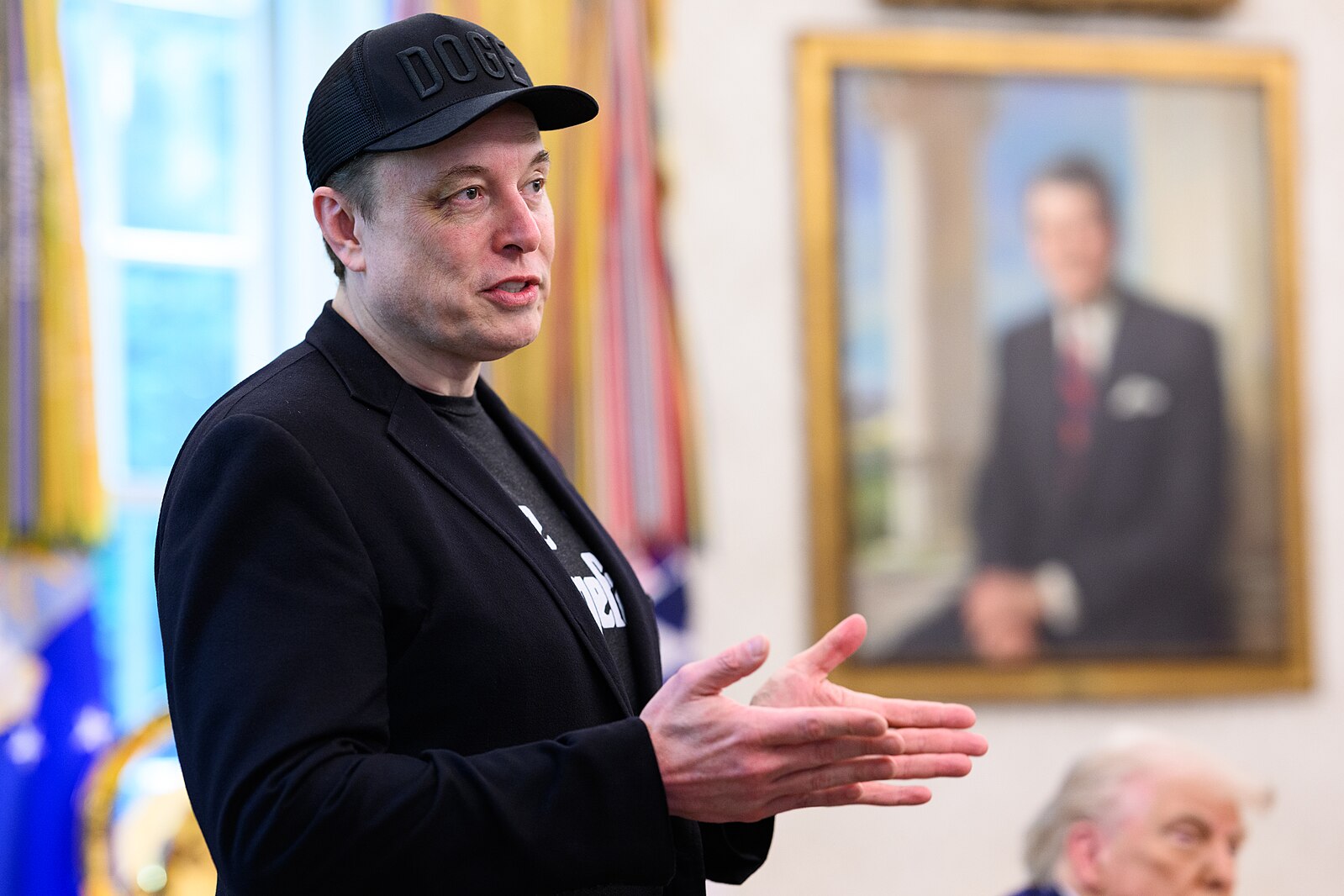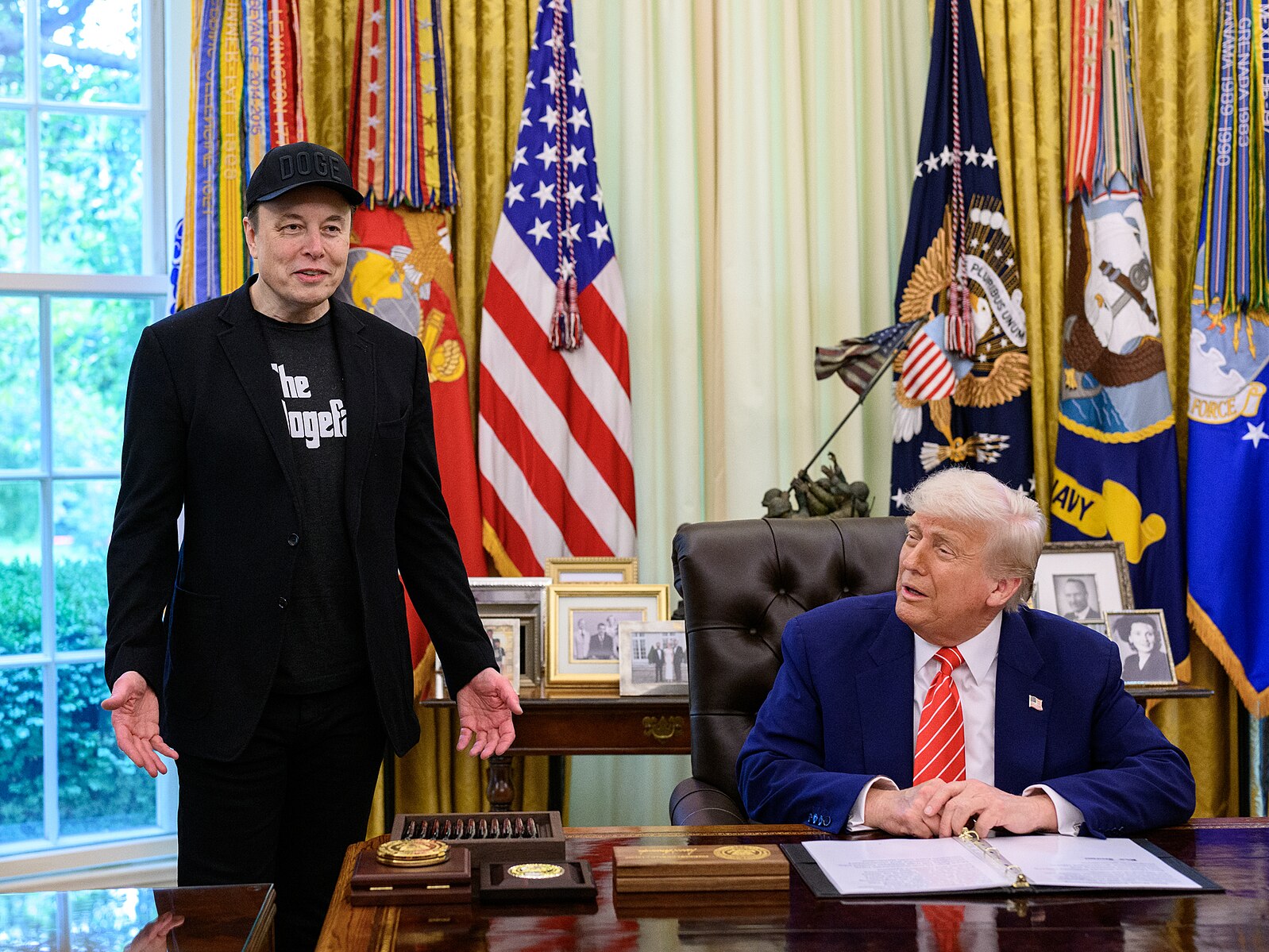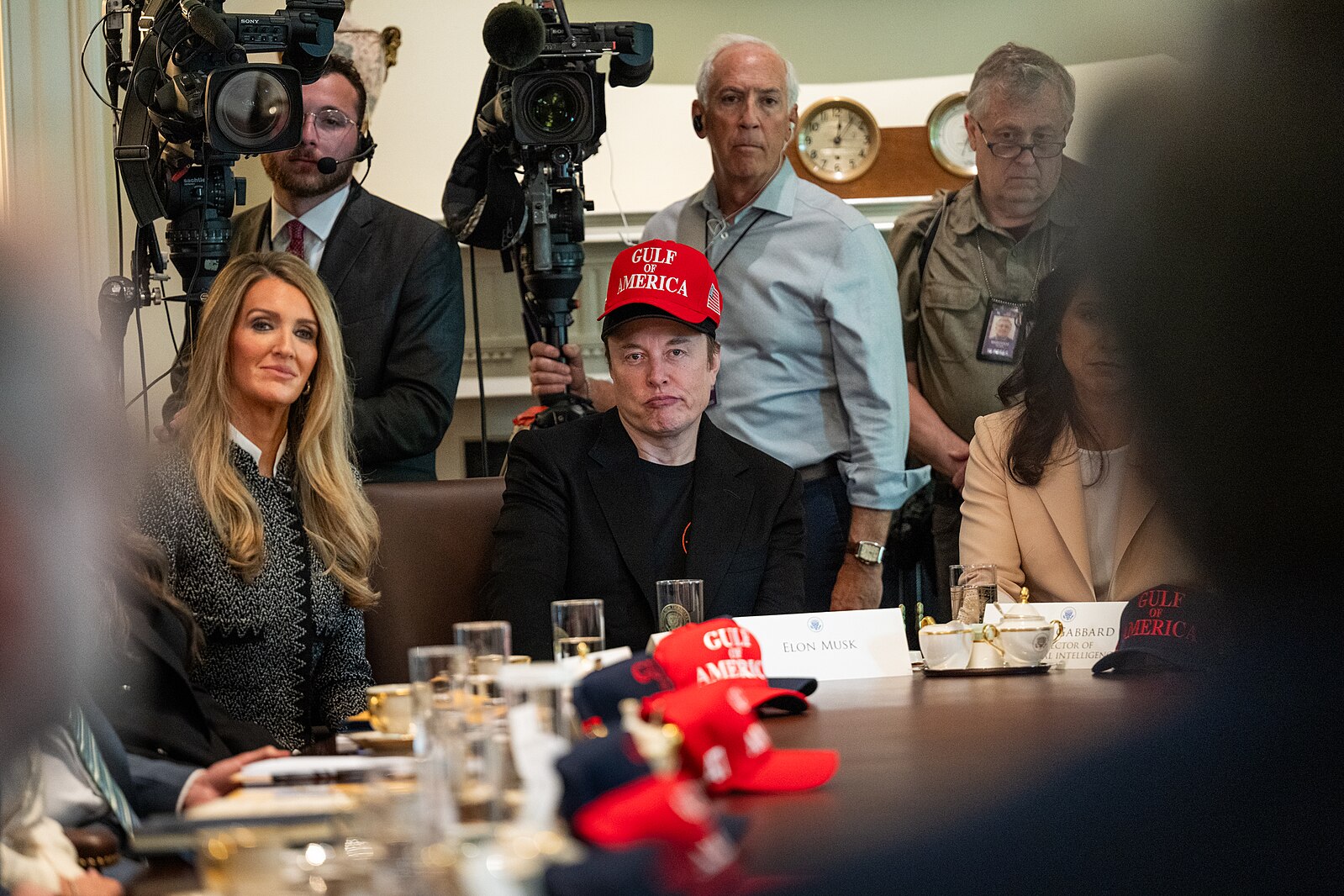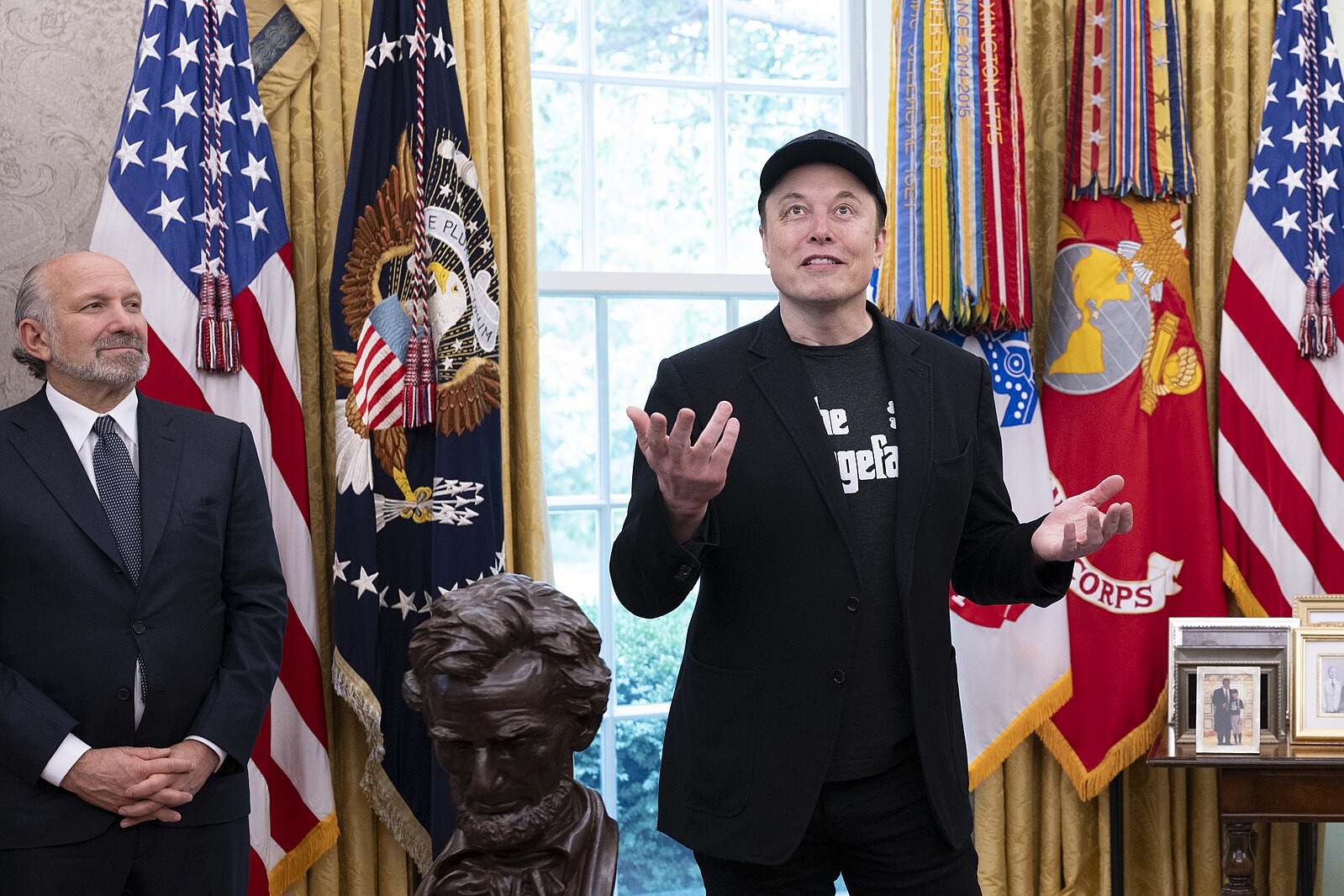Politics
Murdoch-Owned WSJ Blasts Musk’s DOGE as a Costly Failure
By Jake Beardslee · October 10, 2025

Article Accuses Musk of Falling Short on Spending Cuts
Rupert Murdoch’s Wall Street Journal published a scathing critique of Elon Musk on Thursday, claiming the billionaire came “not even close” to fulfilling his promise of massive federal budget cuts. The piece focused on Musk’s short-lived tenure as head of the Department of Government Efficiency (DOGE), where he pledged to save $2 trillion in taxpayer funds. Instead, federal spending reportedly climbed by $220 billion this fiscal year, excluding interest, according to the article. The White House / Wikimedia
DOGE’s Unrealized Savings and Budget Inflation
According to the Journal, the situation could have been worse. The Trump administration’s accounting in September included $131 billion in future savings—funds that haven’t yet materialized—as part of the so-called “Big Beautiful Bill.” Without those projections, the real increase would have reached $351 billion, the outlet reported. The White House / Wikimedia
Limited Impact Despite Layoffs and Cancellations
While the Journal acknowledged that DOGE “claw back some grants and fired some probationary employees,” it added that such actions did little to change “the big picture much so far.” Many of the layoffs were later reversed, with hundreds of federal employees reportedly invited back to work in September after a chaotic restructuring period, the Associated Press found. myCountrAI on X, via AI image generation, Public domain, via Wikimedia Commons
Agencies Left “Broken and Understaffed”
The General Services Administration (GSA) confirmed that it had to rehire many staff members after Musk’s cost-cutting spree left operations in disarray. “The agency was left broken and understaffed,” former GSA real estate official Chad Becker told the AP. The Journal also noted that the only federal areas showing actual spending declines were the Federal Deposit Insurance Corporation—thanks to fewer bank failures—and the Small Business Administration, due to reduced disaster loan costs. The White House / Wikimedia